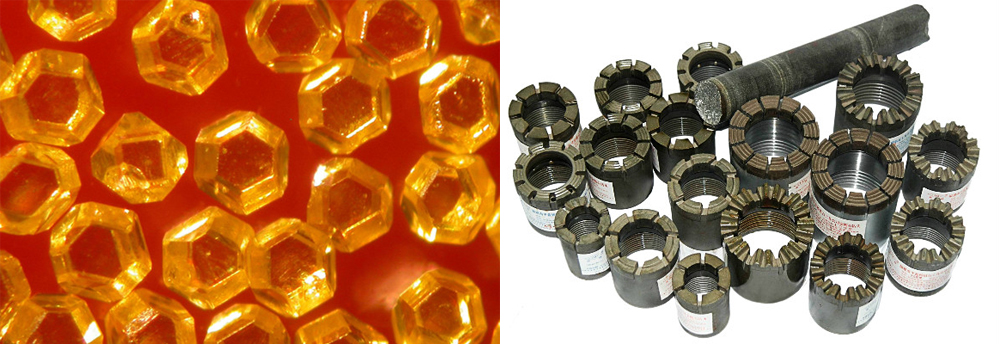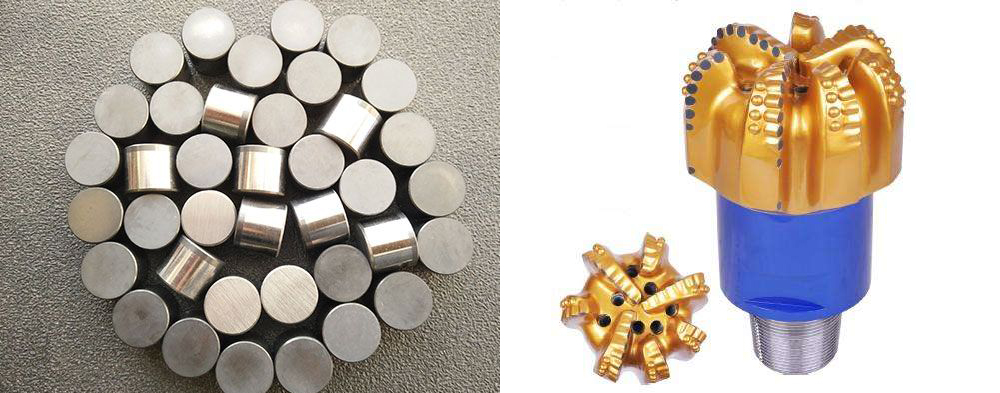
Drilling And Mining
Diamond drill bits are widely used in the fields of geological exploration and mining such as metallurgy, coal and petroleum. Due to its extremely high hardness, it can drill through the hardest rock formations that are difficult to drill through steel, and it is extremely durable. The average footage is doubled or even multiplied than the carbide drill, so the number of drills can be greatly reduced. The drilling speed is faster and is more pronounced when drilling hard and dense rocks. For example, drilling a particularly hard grade 10 rock, small diameter diamond drilling can reach 1-2m/h, while steel diamond drilling is only 0.2-0.3m/h. Small-diameter diamond drill can save steel, reduce labor intensity, reduce accident rate, and has small well inclination, small borehole bending, reduced to about one degree per meter; core collection rate is high, generally up to 90%. The total cost of drilling is significantly lower than that of carbide drills, typically by 30%-40%.

In recent years, the quality and type of diamond composite PDC have undergone tremendous changes. Diamond composite sheet PDC has been widely used in many fields such as geological exploration, coal mining and oil drilling. Various industries have put forward higher requirements for its performance, which further promotes the rapid development of diamond composite PDC technology. In recent years, due to its excellent performance characteristics, diamond composite PDC has gradually begun to play an important role in more new fields.

Our CSD synthetic diamond coarse material, coarse particle synthetic diamond, polycrystalline diamond, diamond composite sheet PDC and TSP are widely used in bit manufacturing, and are used in oil and gas drilling, geological exploration, coal mining and stone processing.
PRODUCTS:
Copyright © 2018 Henan Baililai Superhard Materials Co., Ltd. All rights reserved. Powered by MetInfo
TOP

 简体中文
简体中文 English
English Pусский
Pусский
.jpg)